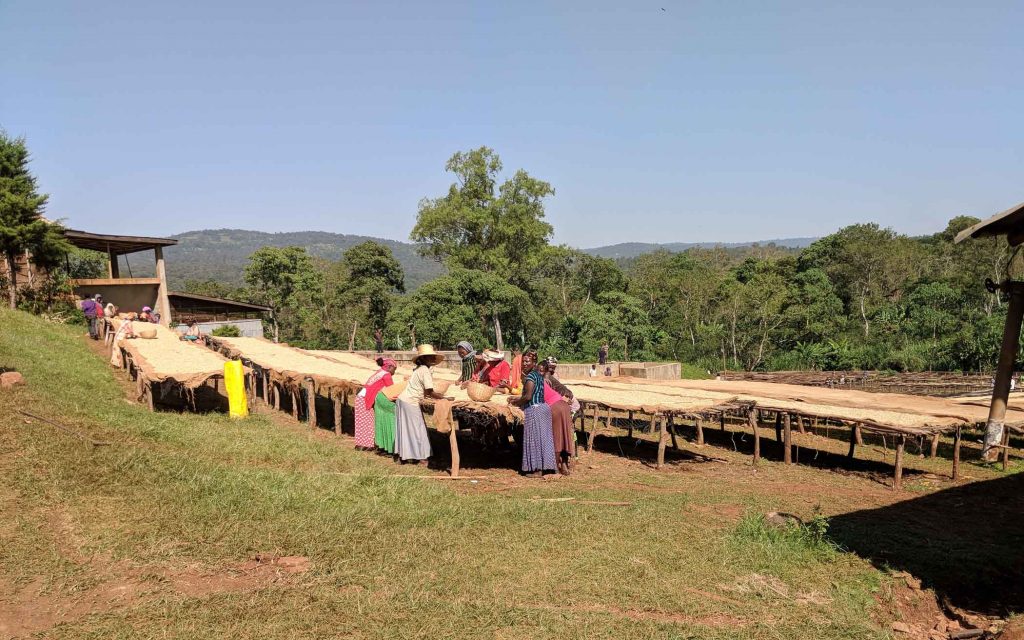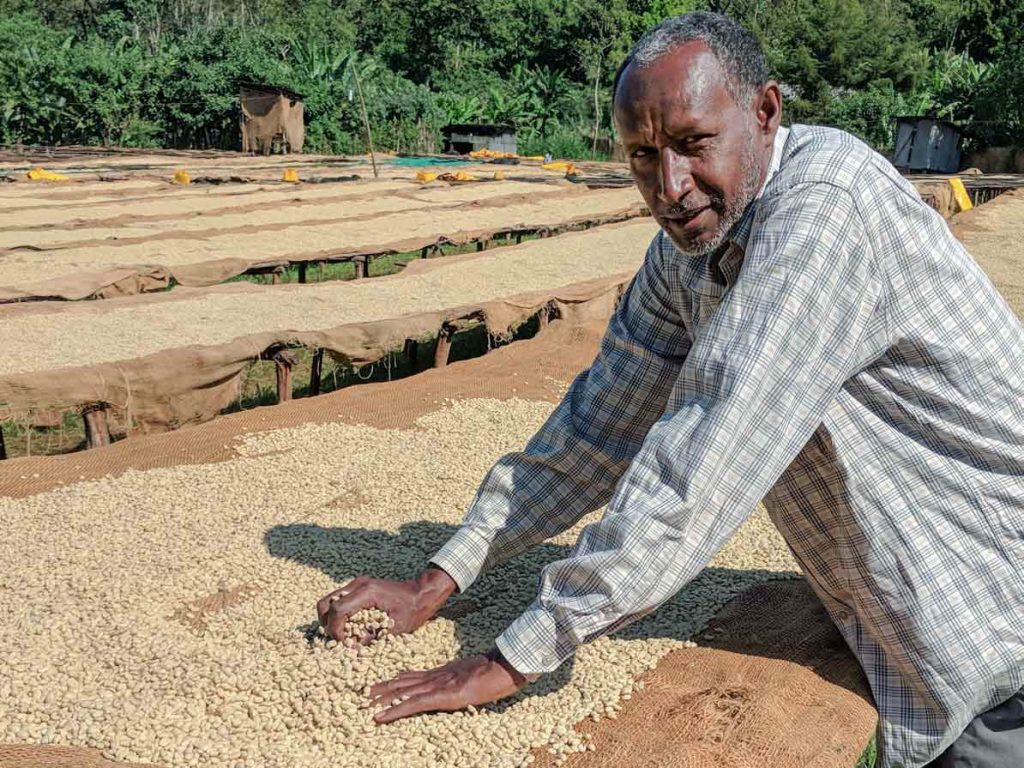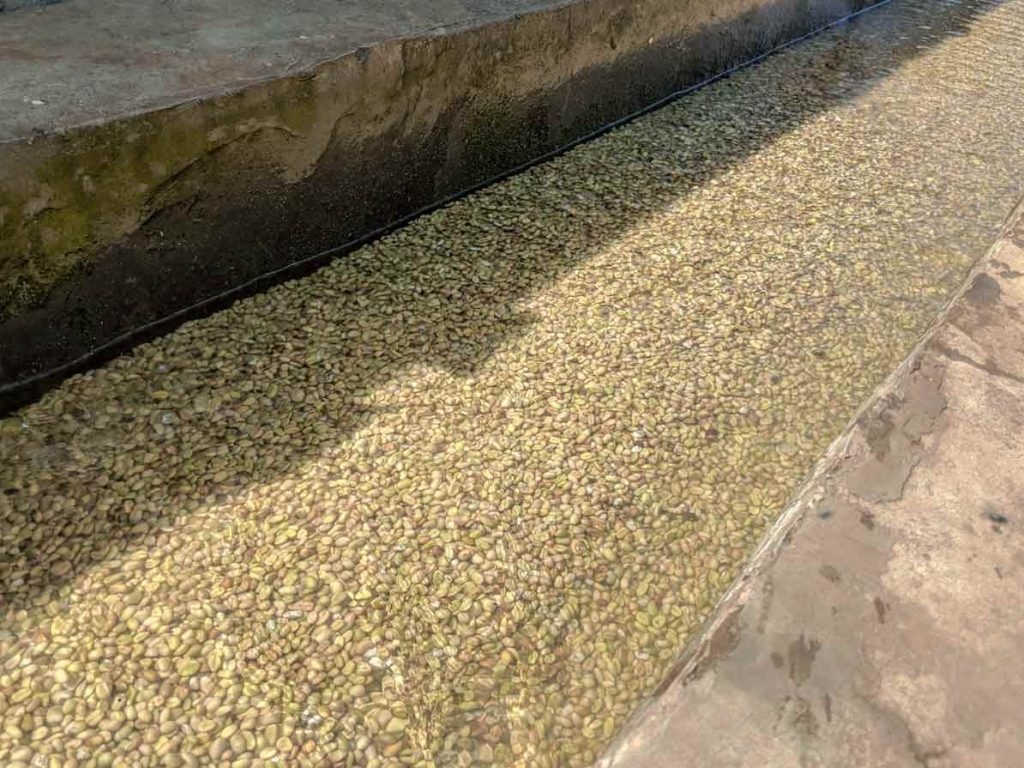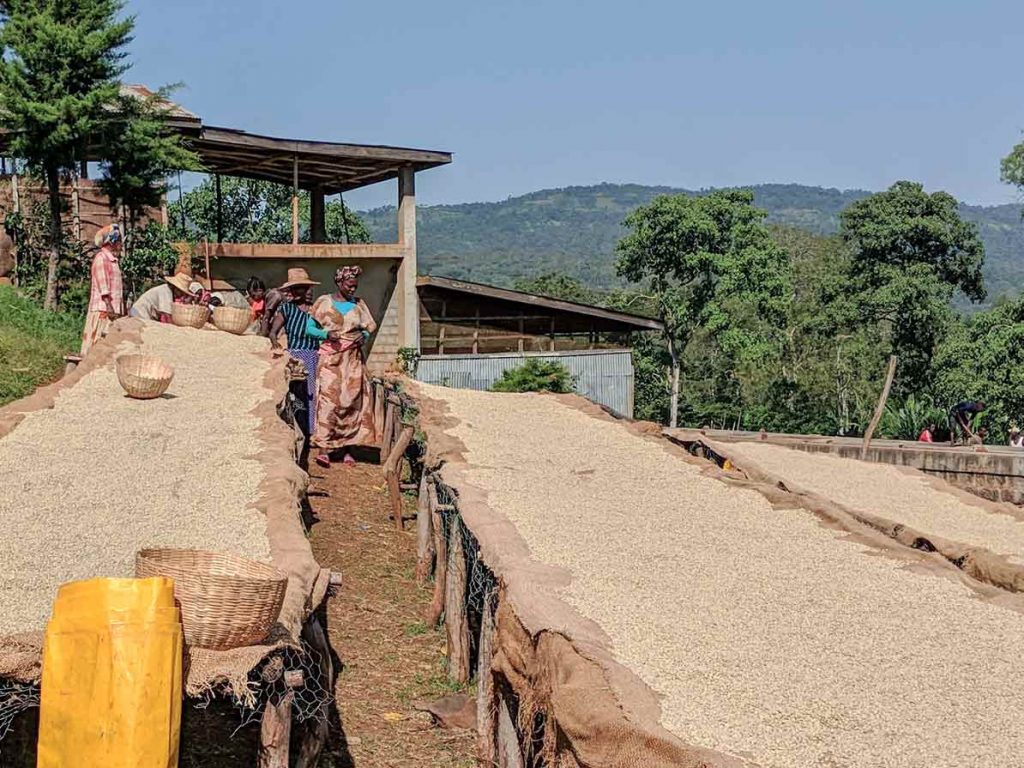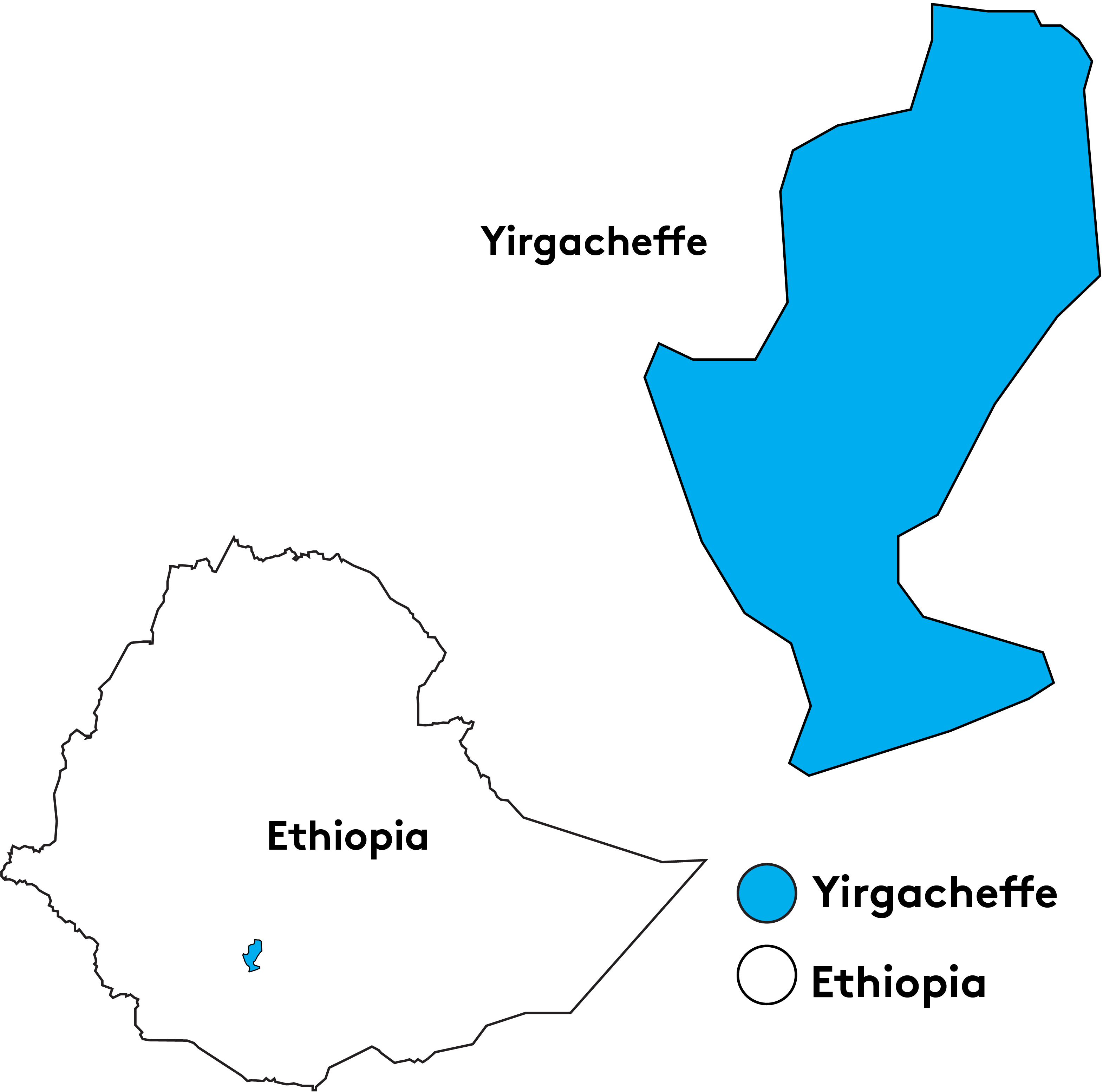Biloya washing station is named for the Kore Biloya kebele (similar to town or village) in which it is located, in the Kochere district of the greater Yirgacheffe coffee area within the Gedeo Zone. Coffees brought to the Biloya washing station are grown between 1700–2000 meters above sea level by the 211 smallholders delivering red coffee cherries to Biloya. These local producers typically grow coffee on farms roughly 0.5–2.0 hectares in size.
Built in 2001, Biloya processes nearly one million kilograms of coffee cherries per year. The washing station’s 138 raised drying beds cover the 2.5 hectares of land at 1700 masl. Biloya employs both men and women to process both Washed and Natural Coffee.
This lot of coffee underwent Washed processing at Biloya washing station. Ripe coffee cherries are sorted before depulping to remove over- and under-ripe cherries from the lot. After depulping, coffee is fermented for 36–72 hours in Biloya’s 12 cement fermentation tanks. The fermented coffee is washed with clean running water, soaked in clean water, and then dried for 18–21 days to retain around 11.5% moisture. The fresh water used for washing coffee has a pH of 7.8.
The cherries delivered to the washing station and resulting parchment are sluiced and floated multiple times to ensure that the cup profile is as clean and consistent as possible. The station is also partially shielded from the sun by the nearby mountain, which lends itself to slower drying of washed process coffees. This reduces the amount of split parchment and results in a cleaner and sweeter cup. Dried parchment coffee is stored at the washing station warehouse until it is transported to Addis Ababa for further processing. The parchment coffee is processed at the dry mill to remove the husks and the clean beans are packaged in clearly marked 60 kg bags for export.
Coffee is prepared for export at Tracon Trading’s coffee cleaning and storage plant on 30,000 sq meters of land in Addis Ababa. The plant is equipped with modern Pinhalense coffee processing machines and a Buhler Z+ color sorter. The machine has the capacity of processing six tons per hour. Beans pass through a final hand sort on conveyor belts. The plant’s six storage silos have a capacity of roughly 15,000 metric tons. The warehouses are clean, with ample lighting and ventilation, which are ideal for maintaining the quality of the coffee.
